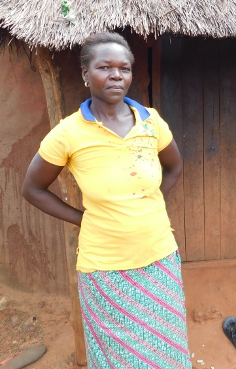Before the removal of point-of-care fees in her community, Mariama used to negotiate a payment plan with her doctor when her children fell ill. For her, like many patients throughout sub-Saharan Africa, the upfront cost of care was too expensive. For others, who cannot negotiate a price, healthcare remains unobtainable.

Globally, spending on healthcare continues to rise as countries move towards achieving Universal Health Coverage (UHC). However, low-income countries, particularly those in sub-Saharan Africa are falling behind. Low-income countries spend 70 times less on health per capita than high-income countries, and the burden of healthcare costs continues to fall disproportionately on citizens.
In Togo, current health expenditure as a percentage of GDP has doubled since 2000. Although indicative of a commitment to health, the increase in health expenditure has been shouldered by patients through out-of-pocket (OOP) payments, or point-of-care fees. These fees which are paid to a service provider at the time of consultation accounted for over 58% of the country’s total health expenditure in 2017, compared to 35% on average across sub-Saharan Africa.
At Integrate Health, we believe that healthcare should not have to be negotiated.
Point-of-care fees are closely associated with catastrophic health expenditure which can force patients and families, like Mariama’s, to make devasting choices between basic needs such as food or healthcare. Furthermore, they lead to the inequitable distribution of health services, which disproportionately affect women and girls living in poverty. As a result, many patients will choose to either not seek health services or to seek out other forms of cheaper treatment before visiting the health center, delaying necessary treatment.
Governments that invest in health systems by removing point-of-care find that health outcomes improve dramatically.
In Burkina Faso, after the removal of point-of-care fees for women and children in two districts, facility deliveries and utilization of essential curative treatments for children increased significantly. In Sierra Leone, after the first year of user fee removal nationally, maternal mortalities in cases of maternal complications managed at health facilities decreased by 61%.
The target set by Sustainable Development Goal 3.8 calls upon countries to achieve UHC by 2030. By prioritizing investment in sustainable health financing mechanisms, governments can shift away from the inefficient, inequitable financing mechanism of point-of-care fees, while ensuring affordable and equitable distribution of health services.
Sustainable health financing solutions include tax revenue on goods, increasing public and private sector contributions, and innovative health financing mechanisms such as long-term financing arrangements.
Integrate Health is currently supporting the Togolese Ministry of Health in their exploration of feasible alternatives to the existing user-fee model. The Ministry has demonstrated strong leadership and a commitment to achieving UHC. They are now armed with data from Integrate Health-supported sites, showing a 243% increase in the utilization of services after removing user fees for pregnant women and children under-5 alongside deploying salaried CHWs and improving the quality of care delivered in health centers through clinical mentoring and infrastructure and supply chain improvements. Integrate Health is grateful to support the Ministry’s critical efforts to improve child and maternal health by increasing healthcare access to over 3 million women and children.
